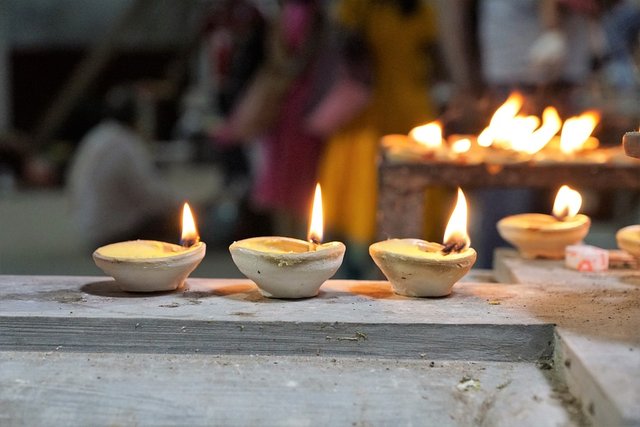Fasting In Different Cultures And Its Benefits - Part 1
Hi Steemians
What is Fasting
Fasting is keeping your self devoid of food for a long period of time. It can be for some hours or even for some days. There are various types of fast depending upon how much control you have on your appetite. Fasting is not a diet and not starving yourself. It is a part of many cultures, religions and had been there for thousands of years. It is very simple, even if it looks very difficult. It can be accompanied by bad breath, headaches, and weariness of body and mind.
I have been fasting for years, as it is a part of my religion. I had no problems doing that and started liking it for one good reason. Weight loss! It helped me a lot to control my weight and make my body function the right way. As a teenager it helped me to have a clear shiny skin and get rid of acne. In the past five years I started experimenting with different methods of fasting such as intermittent fasting and juice fasting.
I see many people who fast all day and have a feast in the evening. I find that totally wrong and unhealthy. It wont benefit our body, but make everything worse. I try to balance my meal even at night and not eat everything at the same time. And before I start fasting I have a good breakfast, same as my normal days. So actually I dont really feel that I am fasting.
Health Benefits of Fasting
- Improves your immune system
- Boosts the metabolism
- Improves body composition and fitness
- Helps us loose weight
- Enhances the body’s resistance to stress
- Encourages Better Insulin Sensitivity
- Improves brain function
- Decreases Blood Sugar
- Helps to clear skin and get rid of acne
- Promotes Heart Health
And many other benefits ...
Spiritual Benefits of Fasting
- Helps overcome negative habits
- Sacrificing meals or behaviors will create a fresh devotion to God
- Help Refocuses on Spirituality
- It leads to better self-control
- Obtaining Spiritual Breakthrough
- It strengthens your soul
Fasting in Judaism
The Jewish calendar contains several fast days,related to events that revolve around the destruction of the Holy Temples. They start fasting before sundown, when it is still light outside, and end after the next sundown, when it is dark outside and three stars can be seen in the sky. On fasting days, it is forbidden to eat, drink, take bath or cut the hair and more, for 25 hours.
Fasting in Christianity
In Christianity fasting is abstaining from drink, food, sleep or sex to focus on a period of spiritual growth. Anything you can temporarily give up in order to better focus on God can be considered a fast (1 Corinthians 7:1-5). Jesus fasted for forty days when he was being tempted by the devil (Luke 4:2). Disciples fasted when they had to make important decisions (Acts 13:2).
It has been part of the Orthodox tradition from the beginning. Orthodox Christians fast on Wednesday's (the day the Lord was betrayed) and Fridays (the day of the crucifixion). Orthodox Monastics also add Mondays (for the angels whose lives they emulate).
Fasting in Islam
In Islam fasting is required during Ramadan, the ninth month of the Muslim lunar calendar. Fasting begins from sunrise to sunset, no food, no drink and no sexual intercourse. Ramadan is meant to be a month of gratitude in which the faithful are reminded of the suffering of those less fortunate.
Fasting in Hinduism
Indian religions have ascetic practices, which includes fasting. This continues from the time when the Jains and Buddhists first emerged, down to what we today call Hinduism. It has many purposes, it can be a form of purification and practicing self-control. According to ancient Hinduism tradition, a person should fast once in a week with an empty stomach until the afternoon, but allowed to drink water. There are different types of fasting in different days and can be also until sunset. The purpose of fasting is to learn swabhiman (self-respect) not to increase abhiman (arrogance).
Fasting in Buddhism
In Buddhism, fasting is an initial stage of self-discipline to acquire self-control. Monks and nuns eat only between dawn and solar noon. The Buddha spoke highly of fasting and said that during his fasts, "My soul becomes brighter, my spirit, more alive in wisdom and truth."
Thank you for reading my blog and have a nice Day :)
Image Sources: www.pixabay.com




Is that your original click? If so then mind blowing one and you are a photographer..good work!
No they are not my photos, but I agree, they are nice. You can use free images for your posts from www.pixabay.com :)
Es de gran importancia el ayuno amiga y mas si es asi de saludable,gracias por tu post y tus consejos.Saludos
Gracias :)
good informations, thank you very much
You welcome :)